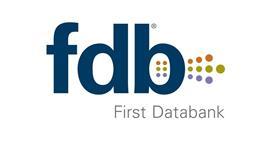Obesity is one of the greatest public health challenges we face today, with more than a quarter of adults in England living with obesity, and the consequences – ranging from type 2 diabetes and cardiovascular disease to musculoskeletal problems and certain cancers – placing immense strain on both patients and providers.
The recently launched Obesity Pathway Innovation Programme underlines the urgency of addressing this challenge in new and sustainable ways.
Sponsored and written by
Alongside prevention and lifestyle interventions, we are now seeing the growing role of pharmacological treatments – particularly GLP-1 receptor agonists (more commonly known by brand names such as Mounjaro) – in the management of obesity. These medicines offer enormous potential to transform outcomes for patients, but their prohibitive cost and limited availability mean the NHS has to approach their use with care. Without robust oversight, there is a real risk of escalating expenditure without achieving the long-term impact needed.
This is where medicine optimisation becomes crucial. Truly effective obesity management is not simply about access to new therapies, but about ensuring that every treatment decision is appropriate, evidence-based, and monitored over time. That means being able to identify patients who meet NHS eligibility criteria, ensuring that prescribing remains aligned with those criteria, and intervening where therapies are being used outside of guidance.
It also means tracking trends in patient outcomes, with a clear view of patient body mass index (BMI) to ensure non-responders can be identified and their treatment reviewed. And importantly, it requires making sure that pharmacological treatment is never delivered in isolation but always supported with access to local and national lifestyle services that can drive sustainable behaviour change.
From an organisational perspective, we know that visibility at a population level is equally important. Integrated care boards, primary care networks, and practice leaders need real-time insights into prescribing patterns, clinical outcomes, and budgetary impact to ensure decision-making is informed and evidence-based. This kind of oversight allows the system not only to demonstrate value but also to target interventions where they will have the greatest effect.
At FDB (First Databank), we believe this is exactly where medicines optimisation solutions such as FDB AnalyseRx can make a measurable difference. We have developed content that helps clinicians quickly identify patients who are eligible for GLP-1 therapies but not yet receiving them, while also flagging instances where medicines are prescribed outside of NHS criteria and linking pharmacological care with local lifestyle services. Crucially, we are also working with ICBs to develop live population dashboards that will allow them to evidence both clinical outcomes and financial impact, turning obesity medicines into a manageable, measurable pathway. We understand that guidelines are rapidly evolving within this space, which is why we are collaborating closely with our customers to help them clearly understand and define these pathways and be prepared for their scope to shift in the future.
By providing the intelligence to identify eligible patients, highlight cost risks, monitor response, and evidence outcomes, the industry can support the NHS to integrate obesity medicines safely and sustainably.
The growth of GLP-1 prescribing represents both a challenge and an opportunity. With tech-enabled medicines optimisation at the centre, I am confident it can become not only a tool to improve individual lives but also a driver of long-term system resilience.
For more information on FDB and the work we’re doing to help in this area, please get in touch at contact@fdbhealth.com































